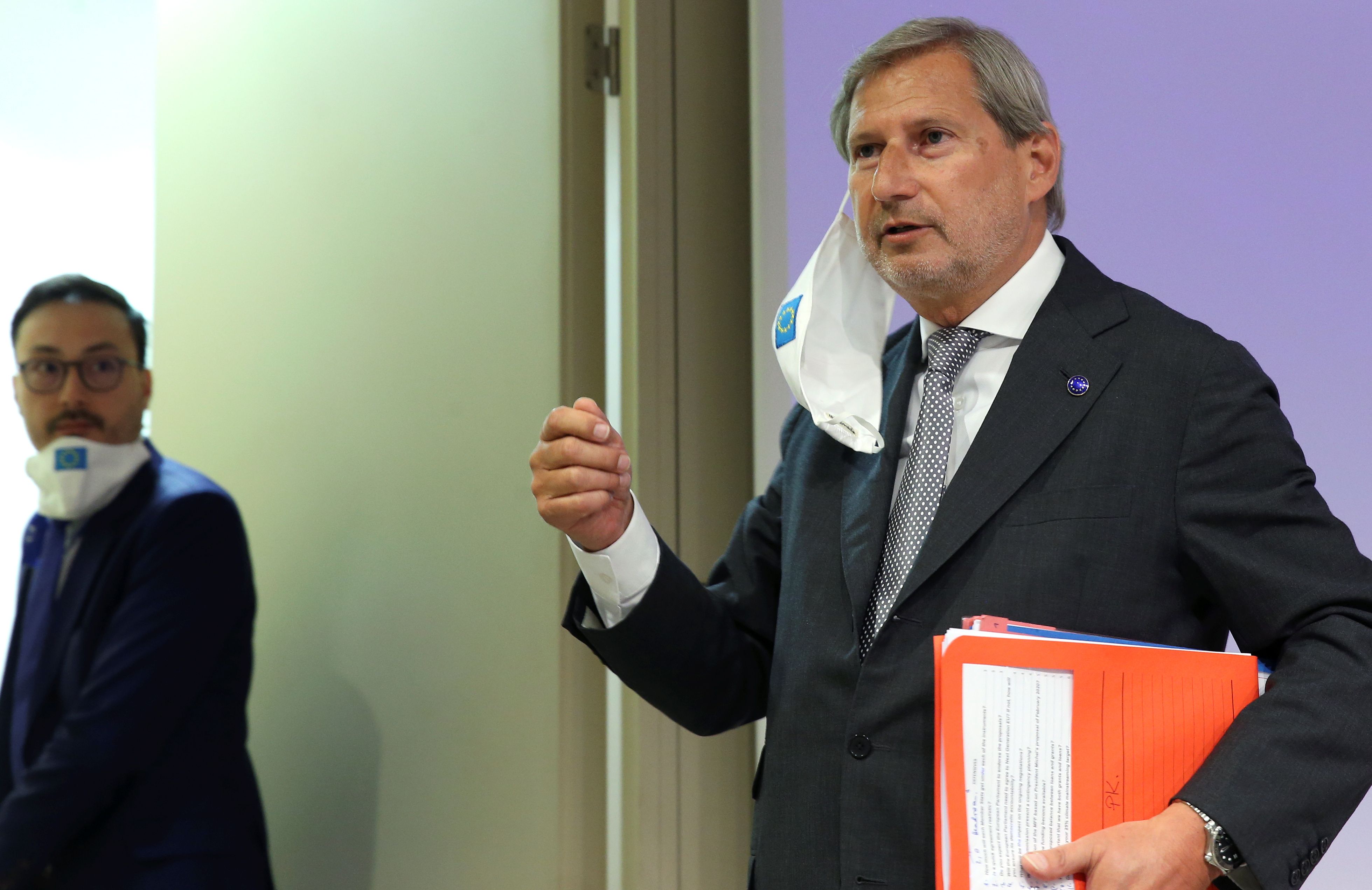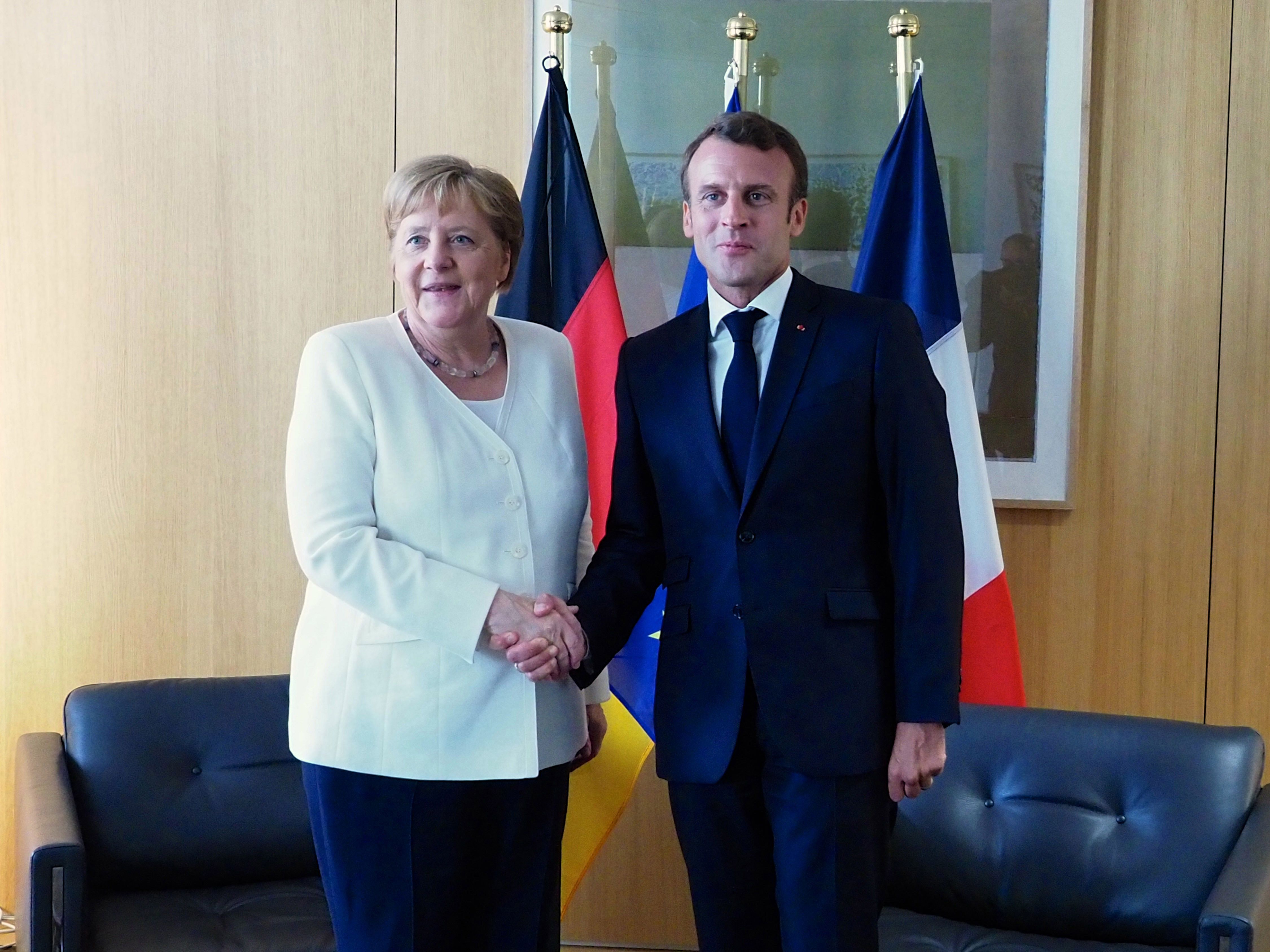A Post-Pandemic Budget: The New Multiannual Financial Framework 2021–2027

A Budget with a Top-Up
The coronavirus pandemic and the serious economic problems that it has provoked have pushed the EC to modify its proposal for the Multiannual Financial Framework (MFF) 2021–2027. The new MFF presented on 27 May amounts to €1.1 trillion (in 2018 prices). It is €34 billion smaller than the proposal put forward in May 2018. However, the Commission wants to increase the community spending thanks to some additional funds raised through the European Recovery Instrument, dubbed the Next Generation EU (NG) and totalling €750 billion. While the MFF is financed by Member State contributions, the NG will be established through long-term bonds issued by the EC. The creation of such a scheme was advocated by the European Parliament and southern European states. A similar mechanism was proposed by a Franco-German initiative announced on 18 May. The debt is to be repaid starting from 2028 and within 30 years. The discussion on sharing the cost of the undertaking will take place in the coming years. The EC claims that most of it can be covered through the establishment of new taxes already in negotiation for a number of years, such as the digital tax and carbon border adjustment mechanism.
New and Old Priorities
Most of the NG money will be devoted to the Recovery and Resilience Facility geared towards supporting projects to counter the effects of the pandemic (€310 billion as grants and €250 billion as loans). The Member States will be allowed to use the funds for a variety of purposes: to support employment, education, or healthcare. The projects should be completed by the end of 2024. The Member States’ plans will be assessed by the EC, which wants the spending to be in line with the objectives of its two key projects: the green and digital transitions. Rule of law also will be one of the criteria—the EC maintained its proposal to freeze community funding for states that breach EU values.
The remainder of the NG funds will go to existing policies and programmes. The considerable injection of new money into the Just Transition Fund (from €10 billion to €40 billion) reflects the importance ascribed by the EC to climate policy. Its purpose is to boost investments in clean energy technology and support employees from sectors that will face reductions (fossil fuels-based sector). In addition, the EC remains committed to the rule included in its original MFF proposal of 2018 that 25% of budgetary spending should support climate-related objectives. The Common Agricultural Policy (CAP) gains €9 billion under the MFF and an additional €15 billion from NG. The cohesion policy’s budget will receive an extra €50 billion from NG. That money is to be spent by the end of 2022 and distributed according to criteria focused on the damage inflicted by the pandemic (e.g., youth unemployment). The EC also announced that it is preparing some modifications of the rules for spending structural funds under the next MFF so that there is more flexibility to use them to tackle the consequences of the pandemic. Moreover, just as in the case of the so-called Juncker Fund several years ago, the Commission wants to use its funds as guarantees to encourage greater private investment, especially in high-technology sectors.
The EC intends to create a new programme focused on healthcare. It will finance acquisitions of equipment, infrastructure improvements, and long-term projects enhancing cooperation of medical staff and disease prevention. The Horizon Europe programme, supporting common research, will have a bigger budget as well. The EC also wants to boost external policy instruments. The budget for neighbourhood and development policies will increase by nearly 10% and that of humanitarian aid by over 50%. Unsurprisingly, the solidarity fund of resources that can be used in case of natural disaster and the EU civil protection mechanism (which financed returns of EU citizens stranded in third countries after the virus outbreak) will be given more money. One of the few initiatives for which funding will be decreased is the European Defence Fund, created to encourage cooperation concerning the research and production of military capabilities.
Like in May 2018, the EC has presented an ambitious timetable for the negotiations and calls on the Member States to conclude them in July. This time, however, the Commission has a strong case because the sooner a compromise is found, the sooner the money can reach the beneficiaries, most of whom need urgent assistance.
Conclusions and Prospects
The Commission’s proposal reflects the view dominant among politicians and analysts that debt is the only way to boost EU resources for fighting the consequences of the pandemic. Mobilising additional funds to deal with the pandemic-related recession and strengthen other common policies will be welcomed by the Friends of Cohesion, an alliance that includes Poland, who argue that greater EU ambitions demand adequate funding. At the same time, a smaller MFF caters to the wishes of the so-called frugal states who are net payers to the common budget. The EC also wants to postpone the planned elimination of rebates that those states have enjoyed. It is likely that the frugals will accept the deal provided that the recovery programme (and thus the common debt) is reduced.
Postponing the most controversial debate about the details of repaying the debt is a ploy commonly used in EU negotiations and it seems that all participants will agree to it. Striking a deal in a short time concerning both how to spend the money and how to pay off the debt will be impossible. By postponing the latter, the Commission hopes to enhance the chances for an agreement on the former. At the same time, it gains another argument in the debate on new EU-own resources created through taxes, which it has been promoting for years. By agreeing to adopt them, the Member States could avoid covering the debt from their own budgets. If, however, an agreement is not reached (the Netherlands, for instance, which is part of the frugal group, opposes the digital tax), the EU could be in for a prolonged dispute about how to pay its creditors.
By advocating a significant increase in EU spending, at least for several years, the Commission wants to boost its influence over the process of economic recovery. At the moment, the latter is determined mostly by national programmes. The disparities between them, due to the differing fiscal potential of Member States, could distort competition on the single market. In addition, the EC wants to continue its flagship projects in the realm of climate policy and digitisation, presented at the beginning of the term. Greater financial means can enhance its influence over the behaviour of Member States, while the crisis could be a catalyst of changes in sectors with a high carbon footprint, such as aviation. It is, however, difficult to assess to what extent the Commission will be able to fully harmonise the priorities of recovery and the abovementioned projects given that the Member States will call for urgent help with few strings attached. The EC’s proposal is important for the European Parliament. During the financial crisis, the chamber had limited clout over the bailout funds, but now as the recovery instrument is spent through the MFF, the EP will have a much greater say over the details of the process.
The Commission proposal corresponds with the preferences of the Polish government, which has insisted that the creation of a recovery instrument cannot entail cuts to community policies in the MFF. It also responds to the calls formulated by Poland and others to provide greater community support for the energy transition, especially for countries that rely on coal like Poland. In the debate around new EU-own resources, the country will have the chance to promote its ideas on new taxes, as recently presented by Prime Minster Mateusz Morawiecki. The mechanism for protection of rule of law is likely to remain contentious.





